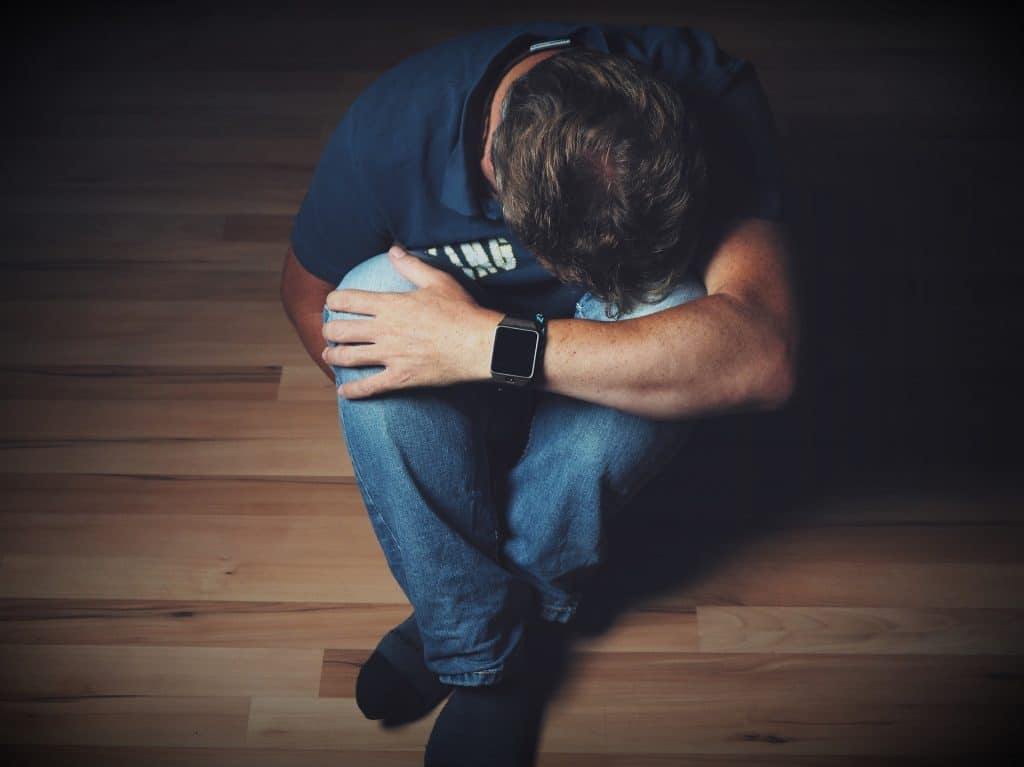Why Does Your Anxiety Get Seriously Worse At Night
We have all been there. You are trying to fall asleep at night and all of a sudden your anxiety starts spiraling. What happened? Where did it come from?
You were fine all day. Now, these horrible, embarrassing, and intrusive thoughts you never wanted are keeping you awake.
Whether it is anxiety about work, worrying about your relationship with someone, or more general anxiety that you cannot pinpoint, it never fails to happen at night.
So what do you do? Because staying up all night getting upset is not the goal here!
Why do you have anxiety at nighttime
Anxiety is an evolutionary survival tactic. It is 100% necessary to keep us out of dangerous situations. Your brain becomes hyperaroused (fight or flight reaction) to protect you. If you have nothing to be fearful of, why do you have anxiety? That is a great question.
Understand that you are not alone and over 40 million other Americans struggle with anxiety every year. What is going on is a simple scientific explanation.
There is an unusual connection in your brain chemistry that makes you more susceptible to being hyperaroused.
When you break it down to look at the science behind why you feel anxious, it makes it a lot less overwhelming. Anxiety, especially at night, can be so consuming because there is no correct answer, just the “what ifs” of your situation.
The reason you have anxiety at nighttime is that you have nothing to distract you. During the day you have work, family, social media, and more to keep your brain buzzing. When it comes time to lay down for bed, all of a sudden you no longer can use the busyness of the day to keep your mind occupied.
At the end of the day, the body starts to follow its natural circadian rhythm to get ready for sleep. When the brain is hyperaroused, it becomes more difficult for the body to follow its circadian rhythm.
This sends the mind-body connection into a state of disarray, causing your nighttime anxiety to flare up.
How to deal with anxiety at night
There are many different ways to deal with your anxiety healthily. Bottom line – you must distract your brain. No, this is not running away from the anxiety.
Remember talking about the brain being stuck in a state of hyperarousal? Distracting it is the main, non-medicinal, way to reset your brain and get it back to its normal state. Then it will be able to fall in line with the body.
Technique 1: Ground yourself
When you are dealing with anxiety at night, a great technique is the grounding technique. This focuses on your senses and bringing yourself back to reality.
For this technique, focus on…
- 5 things you can see
- 4 things you can feel
- 3 things you can hear
- 2 things you can smell
- 1 thing you can taste
This can be used at any time of the day but helps to regulate your system, especially at night.
Technique 2: Practice your breathing
This is the 8-7-6 breathing technique. This helps to calm your anxiety and regulate your thoughts. Focusing on breathing is something that, when anxious, many people forget to do. Without realizing it, your breathing becomes more shallow.
This will force your heart to beat quicker, in turn arousing your body into a higher state of anxiety because of the lack of oxygen.
While laying in bed, place one hand on your stomach.
- Breathe in through your nose for 8 seconds
Make sure you breathe through your diaphragm, do not raise the shoulders.
- Hold your breath for 7 seconds
- Breathe out the entire breath through your mouth for 6 seconds
Breathe out like you are blowing on soup. This is usually a little more forceful of a breath.
Not only is this a great calming technique, but it is also one taught to help those with sleeping issues as well. So this is not only helping you overcome your anxiety, but it is also putting you to sleep in the process!
You can also put on meditation-type music in the background to help drown out the thoughts while you are focusing on your breathing.
Technique 3: When in doubt, write it out
After exercise, writing out your anxieties is the best way to deal with them.
This is a gross analogy but bear with me. Think of your anxiety like a zit. At first, it is a little tender, but you can deal with it. Over time, it grows and becomes more painful.
Finally, once you pop it and get all that junk out, you feel a giant relief from the zit.
That is what writing out your anxious thoughts will do for you. Anxiety starts as manageable but quickly grows to become overwhelming and too much.
Once your brain dumps all of your thoughts onto paper and waits a few minutes, you will find yourself quickly calming down.
There needs to be no rhyme or reason to what you are writing. Just put it all on paper as it comes to you.
Technique 4: Distract yourself
When nothing else helps, sometimes just picking up your phone and playing a game or reading a book can do the trick.
While the phone light may mess with your circadian rhythm, you will still fall asleep faster than if you were keeping yourself up with your anxious thoughts.
Good distraction games keep your brain busy. They require some strategic effort. I prefer doing puzzles on my phone when I start having anxiety at night.
It is soothing and distracting enough to calm me down.
When the brain is put to use, it has to come down from its hyperaroused state to focus on the project at hand.

4 Ways to Fix It
Conclusion
Nighttime anxiety is the worst anxiety. The good news is you can overcome it with some practice. Using the techniques to help regulate your nervous system can be done.
As time goes on, these techniques will become second nature. Anxiety may still creep in every once in a while, but you will have your tools to help overcome it easier and quicker. Those are:
- Grounding yourself.
- Deep breathing
- Writing it out
- Distracting yourself
One little bonus tip to help deal with your anxiety is to give your anxiety a name and talk to it like it is another person.
Studies have shown that being able to look at yourself and your anxiety as separate entities make it much easier to deal with than if they were intertwined.
This way you are dealing with and talking to just your anxiety. You can completely exclude yourself from the situation.
“Facts & Statistics: Anxiety and Depression Association of America, ADAA.” Facts & Statistics | Anxiety and Depression Association of America, ADAA, adaa.org/understanding-anxiety/facts-statistics.
“Generalized Anxiety Disorder.” Harvard Health, Harvard Health Publishing, 5 Dec. 2014, www.health.harvard.edu/anxiety/generalized-anxiety-disorder.

I obtained my Bachelor's of Psychology in 2017 and Masters of Social Work in 2019. I currently work in private practice as a trauma therapist.
